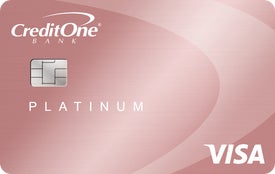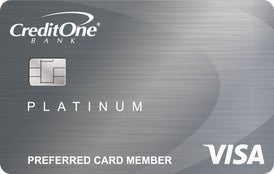Summary
Despite some superficial similarities, Credit One and Capital One are two completely different credit card issuers. Capital One is the much larger and better-known financial institution, but Credit One is still a legitimate company that focuses mostly on cards for people with poor credit.
The content on this page is accurate as of the posting date; however, some of our partner offers may have expired. Please review our list of best credit cards, or use our CardMatch™ tool to find cards matched to your needs.
No one would blame you for mixing up Credit One and Capital One. Not only do the two banks share a similar name and a nearly identical logo, but both also issue credit cards.
The similarities mostly end there, though. Where Credit One focuses largely on credit cards for fair to good credit, Capital One is better known for its lucrative rewards credit cards, many of which require you to have good to excellent credit in order to qualify.
That said, if you’re searching for a card to help you build or rebuild your credit, both issuers have options for you. Just keep in mind that Credit One and Capital One are two completely different companies, each with its own card options, rates and fees and customer service reputation.
Is Credit One the same as Capital One?
No. Credit One and Capital One are two distinct, independent companies. While they share some branding similarities and are both U.S.-based banks that issue credit cards, Credit One and Capital One have no direct affiliation. Capital One does not own Credit One, and vice versa.
Capital One is a much larger and better-known financial institution, with branches across the country and a wide range of products and services, including credit cards, consumer and commercial banking, loans, investments and more.
Credit One, on the other hand, operates exclusively online, and its primary business is issuing credit cards to people with limited credit history or who are looking to build or rebuild their credit.
Though Capital One is a larger and better-known bank, Credit One actually adopted the signature “swoosh” logo first.
What is Credit One Bank?
Credit One Bank is a U.S.-based bank specializing in credit cards for customers with fair to good credit or limited credit history. In operation since 1984, Credit One is one of the 20 largest card issuers in the country and is among the fastest-growing, with over $5 billion in receivables under management and over 10 million card members.
Who owns Credit One Bank?
Credit One Bank is owned by Credit One Financial Inc. Credit One Financial is a Subchapter-S corporation closely affiliated with Sherman Financial Group, LLC, a private equity firm that makes investments in consumer finance businesses with a focus on credit cards, consumer loans and real estate.
Is Credit One Bank a legitimate company?
Yes. Though Credit One operates exclusively online and has no physical branches, it is a legitimate, privately held, FDIC-insured bank headquartered in Las Vegas.
Credit One has faced criticism for the high fees and low limits offered on some of its credit cards. Additionally, the Better Business Bureau notes that Credit One has “a pattern of complaints concerning billing/collection issues,” with some customers alleging the bank forwarded incorrect information to national credit bureaus.
In J.D. Power’s 2021 credit card satisfaction survey, Credit One again ranked last among national issuers, as it has done since it joined the national issuer rankings in the 2017 survey.
Credit One as a brand also got off to a rocky start. Originally called First National Bank of Marin, the company changed its name to Credit One Bank in 2006 shortly after settling claims that its employees had offered secured credit cards to people with damaged credit, then encouraged them to charge their security deposit to the card. As various fees were also tacked on to the card, some customers found their credit limit almost entirely used up, leaving them with only a few dollars left in available credit.
Despite this, Credit One Bank is a legitimate credit card issuer, most notable for offering options to customers with damaged credit who otherwise might not have access to credit – especially in the form of an unsecured card. Credit One cards can also be useful if you need to build credit but can’t afford to tie up money in a security deposit.
The bank even received a rating of “Outstanding” from the U.S. Office of the Comptroller of the Currency (OCC) in its 2018 Community Reinvestment Act Performance Evaluation for demonstrating a “record of meeting the credit needs of its entire community, including low- and moderate-income neighborhoods.”
Best Credit One Bank credit cards
While few Credit One cards have made our list of the best credit cards, they can be a good option if you have severely damaged credit or can’t afford to put down $200 or more as a security deposit in order to build credit.
The issuer also recently broadened its suite of credit card products to appeal to a wider customer base. Along with cards designed to help you build or rebuild credit, you can choose from cash back and no annual fee cards.
You can check if you prequalify for a Credit One Bank card on the issuer’s website, or try our CardMatch™ tool to see if you have any personalized offers waiting. In the meantime, here are a few of our top picks:
What is Capital One?
Capital One Bank is one of the largest banks in the U.S., with over $350 billion in assets and over 700 branches, 30 café style locations and 2,000 ATMs across the U.S., Canada and the U.K. The company was founded in 1994 and initially focused solely on credit card products before expanding into auto financing and consumer and commercial banking in the late 1990s.
Well known for its “What’s in your Wallet?” ad campaign, Capital One is a subsidiary of Capital One Financial Corp. and is the fourth largest credit card issuer in the U.S., behind Chase, Citi and Bank of America.
Like Credit One, Capital One offers options to borrowers with less-than-stellar credit histories; however, the issuer is also behind popular rewards cards like the Capital One Venture Rewards Credit Card, the Capital One Quicksilver Cash Rewards Credit Card and the Capital One Walmart Rewards® Mastercard®. It also launched a luxury travel card, the Capital One Venture X Rewards Credit Card.
In short, you’re much more likely to have heard of Capital One than Credit One.
That said, Capital One is no stranger to controversy. Most notably, a 2019 data breach at the company compromised the account and identity security of over 100 million customers in the U.S. and Canada.
Capital One has also faced sanctions from the OCC and the Consumer Financial Protection Bureau (CFPB) for pressuring and misleading millions of customers into buying additional “add-on” products – like payment protection and credit monitoring services – when they opened their accounts.
Still, Capital One has fared much better than Credit One when it comes to customer satisfaction, coming in third place in J.D. Power’s 2021 U.S. credit card satisfaction survey, up from fifth place the year before.
Best Capital One cards for building or rebuilding credit
Like Credit One, Capital One offers a number of card options if you need to build or repair your credit history. And not only does Capital One have higher-rated customer service and tend to charge lower fees than Credit One, the issuer frequently releases targeted card upgrade offers. Use your starter card responsibly, and you could soon find yourself eligible to upgrade your Capital One card to something more lucrative.
Consider these options, all of which are open to applicants with poor credit or fair or average credit:
| Card | Annual Fee | Rewards Rate | Credit Recommended | Best for |
|---|---|---|---|---|
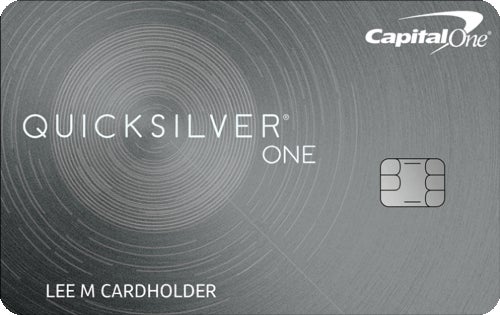 | $39 | 1.5% cash back on every purchase | Fair/average and above | Flat-rate cash back |
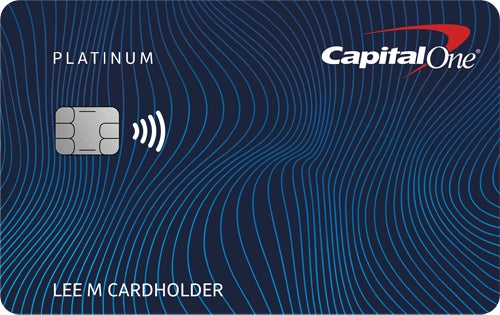 | $0 | None | Fair/average and above | No deposit required |
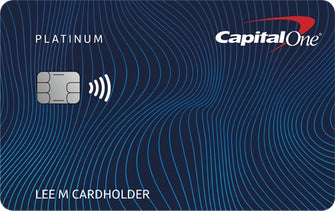 | $0 | None | Bad and above | Low minimum deposit |
Bottom line
Credit One Bank and Capital One share some superficial similarities, including an easy-to-mix-up name and a nearly identical logo, but the two companies are not directly connected in any way. Capital One is by far the better-known and more diversified financial institution. While neither issuer has a spotless record, Capital One has a much better customer service reputation overall.
That said, if you have bad credit or limited credit history, both Credit One and Capital One cards can be a good starting point on the path to the perfect credit score. Just be sure to read each card’s terms and conditions closely before you commit and take advantage of prequalification whenever possible to minimize the risk of applying.
Editorial Disclaimer
The editorial content on this page is based solely on the objective assessment of our writers and is not driven by advertising dollars. It has not been provided or commissioned by the credit card issuers. However, we may receive compensation when you click on links to products from our partners.


